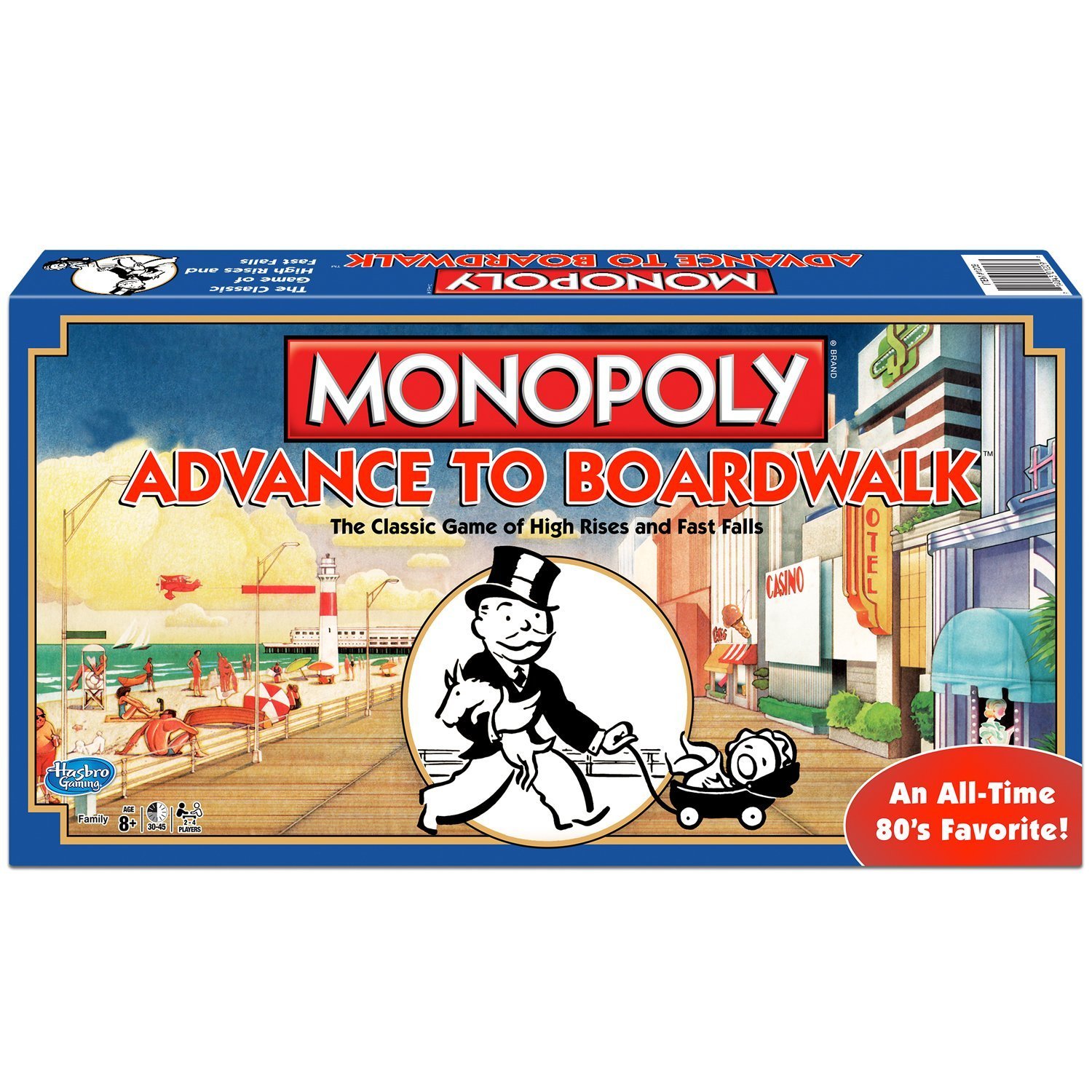Advance to Boardwalk
Advance to Boardwalk
Advance to Boardwalk is a board game that was released in 1985 as a spin-off of the popular board game Monopoly. Like Monopoly, the game is set in the real-estate world of Atlantic City, New Jersey, but focuses only on the boardwalk area. The game involves the building of hotels, which are constructed by the various players who place markers to indicate the growing floors of the hotels.
Why is Advance to Boardwalk Popular?
Advance to Boardwalk is a popular game that has been enjoyed by many players over the years. It is significant because it offers a unique twist on the classic game of Monopoly, with a focus on building hotels rather than buying and selling properties. The game is also notable for its simple mechanics and easy-to-learn rules, making it accessible to players of all ages and skill levels.
Game Components of Advance to Boardwalk
How To Setup Advance to Boardwalk
To set up the game, place the gameboard in the middle of the table and position the property cards next to their corresponding spaces. Shuffle the Fortune cards and deal two to each player, who should keep them face down. Each player chooses a color, places their token on the start space, and takes a specified number of hotel units based on the number of players. The player who rolls the highest number on the two regular dice starts the game.
Gameplay Mechanics and Game Objective
Mechanics
Game Objective
Player Experience
Advance to Boardwalk offers a quick and easy-to-learn experience, making it suitable for family game nights or beginners. The game is light on strategy and heavy on luck, with the roll of the dice significantly impacting gameplay. Players can experience sudden changes in lead and surprising outcomes, keeping the game engaging but not overly complex. However, the game can feel unbalanced with fewer than four players, and the lack of deep strategy might make it less appealing to hardcore gamers.
Pros
Cons
Personal Thoughts on Advance to Boardwalk
Advance to Boardwalk is ideal for families seeking a light, fun gaming experience or for new players looking to dip their toes into board gaming. It’s a solid choice for weekly game nights, offering a refreshing alternative to more complex games like Monopoly. However, it may not satisfy gamers craving deeper strategy and complexity. Overall, it’s a great introductory game that promises entertainment without the need for heavy thinking or prolonged gameplay sessions.
We are supported by our audience. When you purchase through links on our site, we may earn an affiliate commission, at no extra cost for you. Learn more.

